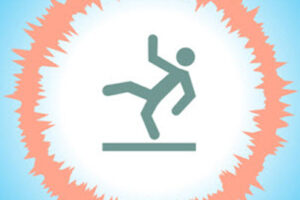“Actual Or Constructive Notice” & Florida Slip-And-Fall Cases

Slip and fall accidents are one of the most common types of personal injury cases, and those that happen in a place of business like a supermarket can result in an injured person recovering significant money damages for the harm they have suffered. However, slip and fall cases that happen on business premises requires an extra requirement that may not be necessary elsewhere. If you have been injured in a store or other commercial area, it is important to be aware of the steps you have to take before you can file suit against the owner or operator.
The Law Of Premises Liability
In Florida, the elements of a slip and fall case are similar to any other negligence case – an injured plaintiff must establish that the defendant owner or operator owed a duty of care toward them and those situated like them, and then show that the duty was breached as a direct result of the defendant’s actions (or lack thereof). However, there are small details that must also be taken into account when dealing with slip and fall cases that may not be relevant in other personal injury matters.
Most slip and fall cases fall under the heading of premises liability law. This is an area of law that groups visitors into three categories – invitees, licensees, and trespassers – and requires a different duty of care from a property owner or operator when dealing with each one. A customer shopping at a commercial business is an invitee, and thus owed the highest duty of care – the owner must not only keep their property reasonably safe for an invitee, but must also warn them of any potential hazards that they know (or should know) about. At common law, if a business owner failed in that duty, they were liable for the customer’s injuries.
Actual Or Constructive Notice
Florida (and indeed, most U.S. states) are known as common law jurisdictions, meaning that certain legal ideas and precedents have been handed down from English common law. The common law is valid unless it is specifically overruled by case law or the legislature passing a statute. The Florida legislature passed a law in 2010 which requires that if someone slips on a “transitory foreign substance” in a “business establishment,” they cannot simply argue that the business breached their duty of care – rather, they must establish notice, whether actual or constructive.
What this means for injured plaintiffs is that if you slip on something on, say, a supermarket floor, you cannot simply argue that the mere presence of the substance equals negligence. Rather, you must show that the business either knew or should have known about the danger, and taken steps to fix it. If you cannot establish that the business knew about their slippery floor, you cannot hold them liable for your injuries and/or failure to fix it. This can create a very high burden for an injured person to meet – but doing so is not impossible.
Call An Orlando Slip & Fall Injury Attorney
No one expects to be injured, and if an injury does happen, it is perfectly understandable to immediately seek compensation for what you have been through. However, Florida’s laws can make receiving that compensation a difficult endeavor. An Orlando slip & fall injury attorney from the Hornsby Law Group can help give you the best possible chance to recover financially, while you focus on recovering physically. Contact our office for a free consultation.
Source:
leagle.com/decision/1972407261so2d1461397